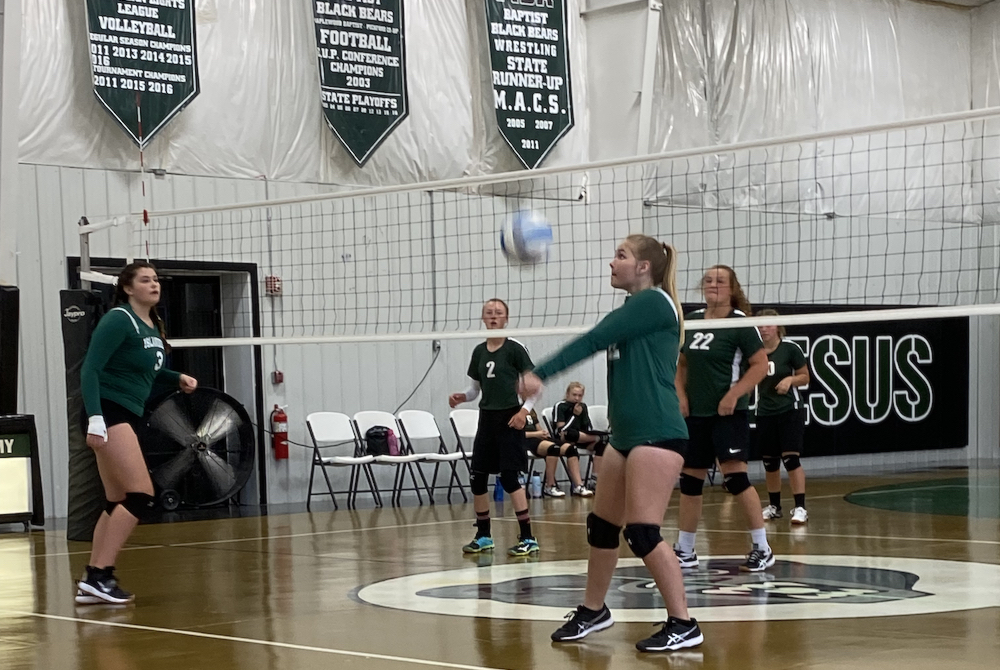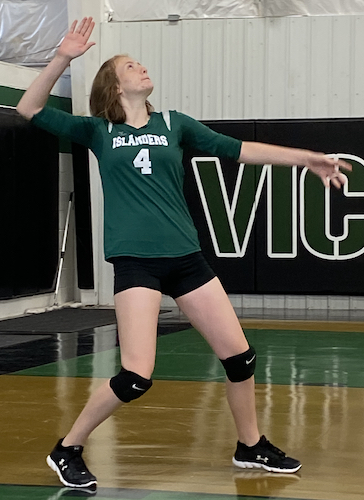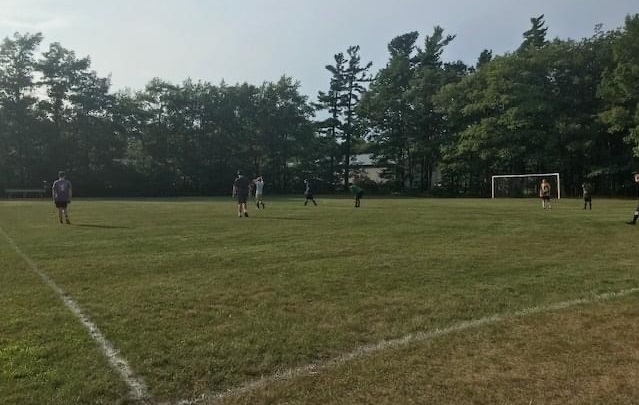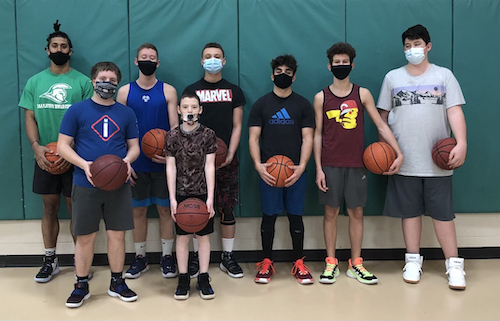
Detroit 'Longtime' Boys Coaches Down to Few
By
Tom Markowski
Special for Second Half
December 14, 2016
Gary Fralick considers himself one of the fortunate ones.
 Fralick, 66, is in his 32nd season as a head boys basketball coach. He retired from his teaching position in 2013. He started coaching at Redford Thurston in 1979, went to Royal Oak Kimball in 1984 and is in 23rd season as the head coach at Troy.
Fralick, 66, is in his 32nd season as a head boys basketball coach. He retired from his teaching position in 2013. He started coaching at Redford Thurston in 1979, went to Royal Oak Kimball in 1984 and is in 23rd season as the head coach at Troy.
Fralick might be lucky, but he is unquestionably rare. Fralick is believed to be one of three coaches in the Macomb/Oakland/Wayne area who has coached for more than 30 seasons.
There’s Dan Fife at Clarkston and Kevin Voss of Clinton Township Chippewa Valley, both of whom in their 35th seasons, all at the same school.
Another, Greg Esler at Warren DeLaSalle, is in his 30th season. He was the head coach at St. Clair Shores Lake Shore for seven seasons before going to DeLaSalle in 1994.
“We’re part of a dying breed,” Voss said.
It certainly appears so. Coaching longevity has taken on a different meaning recently. Twenty seems like a lot in these times, and in reality it is a long time. Twenty years or so ago, 20 years was normal. There’s a new normal, and 20 or 25 years isn’t it.
Many factors have contributed to this change. A person’s personal and family life often don’t coincide with the demands of coaching basketball. The responsibilities that come with coaching have increased. Some coaches say that to be an effective coach, it can be a 10- or 11-month job.
Two factors are at the forefront, and they are both financial. Coaches used to be educators as well as coaches. Yes, coaching can be viewed as teaching on the court, but at one time teaching in a classroom and coaching used to go hand in hand.
 Then there’s the subsidy coaches receive. It varies from school district to school district. Some make $4,000 a season, others can make $7,000. And it also costs money to run a program; unless the coach receives financial help from a booster club or parents, the money he or she receives begins to dwindle.
Then there’s the subsidy coaches receive. It varies from school district to school district. Some make $4,000 a season, others can make $7,000. And it also costs money to run a program; unless the coach receives financial help from a booster club or parents, the money he or she receives begins to dwindle.
But the most important factor is time.
“A tremendous amount of time is devoted to watching DVD or tapes,” Fralick said. “I know I’m dating myself with saying that. The point is, you’re watching a lot. There’s more scouting. And you don’t get paid much. Why don’t they stay as long as they used to? They get burned out. They want to spend more time with their families.
“You don’t see as many of the young coaches stay. Coaches don’t have the ambition to coach a long time. It’s not a profitable job. I don’t know what other coaches make. We used to compare what we made. Not anymore.
“Thirty years or more? I don’t see it happening. There’s the dual job thing. Things have changed. To me, it’s been a great job.”
To compensate for being away from home, Fralick brought his family with him. Sort of. He coached his son Gary, Jr., and Tim. Gary, a 1996 Troy graduate, played for his father his junior and senior seasons and Tim, a 1999 graduate, played four seasons on varsity. Fralick said he was even more fortunate to coach both on the same team (during the 1995-96 season).
Then there’s his wife, Sharon, who remains the scorekeeper.
“I’ve always had a passion for coaching and teaching,” Fralick said. “I love the game of basketball. I love the kids. There’s never a dull moment. It’s been a great ride.”
Vito Jordan has been around basketball all of his life. His father, Venias Jordan, was the boys head varsity coach at Detroit Mackenzie and Detroit Mumford before stepping down as a head coach only to return to the bench assisting his son the last six seasons.
Vito Jordan, 31, became a head coach at Detroit Osborn when he was 24. He started his coaching career the year before as an assistant to Henry Washington at Macomb College. Jordan went to Detroit Community after one season at Osborn and guided Community to its only MHSAA Finals appearance (Class B, 2013). He’s now in his fourth season as the head coach at Detroit Renaissance.
“I followed my father all of my life,” Jordan said. “I knew what I wanted to do when I was in college (Alma College). This is what I want to do the rest of my life.”
It’s different in Detroit. Schools close. Job titles change. Jordan, for instance, teaches at the Academy of Warren, a middle school in Detroit. It’s a charter school, not within the Detroit Public School system, therefore he receives his pay from two separate school systems (Renaissance is in the DPS).
There is a distinction. In some school systems coaches will receive a percentage – let’s say for argument sake, 10 percent – of their teaching salary to coach. Let’s say a person makes $60,000 a year to teach. He or she would then receive $6,000 to coach. If you coach two sports, that’s $12,000.
 Jordan is not privy to such a contract. Each job is separate. Jordan loves to coach, and he understands he must be a teacher to earn a decent living, and he’s content to continue on the path he is following. But he also knows that to make a good salary just coaching one must move on to the collegiate level like others have done.
Jordan is not privy to such a contract. Each job is separate. Jordan loves to coach, and he understands he must be a teacher to earn a decent living, and he’s content to continue on the path he is following. But he also knows that to make a good salary just coaching one must move on to the collegiate level like others have done.
“When there were coaches like my dad, Perry Watson (Detroit Southwestern), Johnny Goston (Detroit Pershing) and others, they all worked in the (Detroit Public) school system. Everyone was teaching. That was your career. None of them had aspirations of being a college coach. Not even Watson. Now everyone isn’t in the teaching profession. Maybe they do have a degree and maybe they don’t. The point is, most aren’t teachers. I can count on one hand those (in Detroit) who have their teaching certificate and coach.”
Jordan noted such successful PSL coaches like Derrick McDowell, Steve Hall and Robert Murphy who left high school to pursue a coaching career in college. Murphy guided Detroit Crockett to the Class B title in 2001 and is now the head coach at Eastern Michigan. McDowell has had two stints as a collegiate assistant coach, most recently at EMU. He’s since returned to coach at Detroit Western. Hall coached Detroit Rogers to three consecutive Class D titles (2003-05) before going to Duquesne University and Youngstown State as an assistant coach. Hall returned to Detroit last season and is in his second season as head coach at Detroit Cass Tech.
Jordan said they left high school to challenge themselves professionally, among other considerations. Voss said there are variables that influence how long a person lasts, in one school district or in coaching in general, that didn’t exist 20 years ago.
“Athletics have become pervasive in high school,” he said. “The whole booster situation you find in college is here. You can be winning but not winning enough. It’s a trickle down affect.
“Coaches complain about parents. Parents complain about playing time. High school sports is not as pure as it once was. Winning is way more important now. Now a coach comes in with a three-year window. You can have one or two down years, and the third you’d better win.
“Then there’s the pressure on your family. I’ve been lucky. My wife and I have had the players over for team dinners. We create a family atmosphere. It’s a change of society. I don’t envy the young coaches coming in.”
Community involvement has always been a priority for Voss. To keep a hand on the pulse, Voss heads the elementary basketball program within the Chippewa Valley school district. Games are held on Saturdays, and approximately 750 students take part.
“You have to have the right fit,” he said. “I’m in the right spot. You coach for different reasons when you get older. I’m enjoying the game. There’s a different level of satisfaction.”
 Tom Markowski is a columnist and directs website coverage for the State Champs! Sports Network. He previously covered primarily high school sports for the The Detroit News from 1984-2014, focusing on the Detroit area and contributing to statewide coverage of football and basketball. Contact him at [email protected] with story ideas for Oakland, Macomb and Wayne counties.
Tom Markowski is a columnist and directs website coverage for the State Champs! Sports Network. He previously covered primarily high school sports for the The Detroit News from 1984-2014, focusing on the Detroit area and contributing to statewide coverage of football and basketball. Contact him at [email protected] with story ideas for Oakland, Macomb and Wayne counties.
PHOTOS: (Top) Troy boys basketball coach Gary Fralick, left, is in his 32nd season coaching. (Middle) Detroit Renaissance boys coach Vito Jordan is following in the coaching footsteps of his father, Venias. (Below) Chippewa Valley boys coach Kevin Voss, left, is in his 35th season at his school. (Top and below photos courtesy of C&G Newspapers; middle photo courtesy of Detroit Public School League.)

Flights, Flexibility, Fun & New Friends All Parts of Beaver Island's Sports Story
By
Tom Spencer
Special for MHSAA.com
August 27, 2021
Chartered flights and overnight stays for all away games are part of the normal routine for one northern Michigan high school’s student-athletes.
 Opportunities to make lots of new friends always come with the games too.
Opportunities to make lots of new friends always come with the games too.
That’s the norm for Beaver Island athletes representing the Lakers in soccer, volleyball and basketball while competing in the Northern Lights League.
“We fly everywhere, and it is awesome,” says second-year soccer coach Bryan Doughman. “I thoroughly enjoy the travel.
“The biggest challenge is the kids forgetting something, and I am ultimately responsible for ‘How am I going to fix this?’”
Beaver Island is the largest island in Lake Michigan, northwest of Charlevoix in the Lower Peninsula and southeast of Manistique in the U.P. The island is home to 600 year-round residents, with 60 students kindergarten through 12th grade, including 17 in grades 9-12 this school year.
Doughman manages a restaurant on the Island. He is a native of Cincinnati. Coaching the co-ed soccer team has permitted him to make his first trips to the Upper Peninsula and Mackinac Island.
But social aspects provide the most benefit for the student-athletes. The Islanders will make their first trip of the season Sept. 15 to Concord Academy Boyne. As they do at home, the Islanders will play a game Friday afternoon and Saturday morning. The overnight experience is provided by the home school.
 “The kids will be seeing and meeting new friends,” Doughman noted. That’s what they ultimately look forward to … socially with different people.
“The kids will be seeing and meeting new friends,” Doughman noted. That’s what they ultimately look forward to … socially with different people.
“We all know the situation of going to work where you interact with the same people over and over again and can’t wait to meet new people,” he continued. “That’s what they kinda go through their whole lives.”
Beaver Island’s girls volleyball team opened its season Aug. 27 with a pair of losses at Maplewood Baptist in Kinross, located in the eastern Upper Peninsula.
The soccer and volleyball teams will open their home seasons Sept. 10 and 11, hosting Hannahville Nah Tah Wahsh, another U.P. opponent.
“The island community enjoys being able to come and cheer on the island teams,” noted second-year volleyball coach Bridget Martin.
The boys and girls basketball teams will go through their seasons this winter similarly. Athletics and social opportunities are a source of satisfaction for Kerry Smith, Beaver Island’s athletic director. She grew up on the Island and competed for the Islanders.
“The best part of being an AD on an island is the great deal of satisfaction I get from watching our kids be able to connect with other kids their age and play a sport and have a great time doing it,” Smith said. “The kids here know what a privilege it is to be able to have a sports program, and they show their appreciation through their outstanding sportsmanship – and that makes me beam with pride!”
Dianna Behl, Beaver Island’s language arts teacher, will take over the girls basketball team this winter. She has served as the school’s Nordic ski club advisor the past four years and has practiced with the basketball team frequently. She was a three-year letter winner at Charlevoix High School.
She’s expects her team to benefit from players taking part in fall sports.
“I am very excited for our season because many of the players are participating in soccer and volleyball, so they should be in great shape for basketball season,” she said. “I hope to build on their solid base.”
Dan Burton will be entering his seventh season as the varsity boys basketball coach. He’s also developing an elementary basketball program and guiding the middle schoolers. He expects to have a middle schooler or two join the high school team to fill out the roster this winter.
 “The best part of coaching is getting these the students an outlet for sports,” said Burton, a business owner on the island. “Otherwise, there’s nothing much else to do in a small town like this.
“The best part of coaching is getting these the students an outlet for sports,” said Burton, a business owner on the island. “Otherwise, there’s nothing much else to do in a small town like this.
“Keeping a sports program is the most important thing.”
The soccer team also is relying on middle schoolers as it attempts to find enough players to compete. The co-ed roster is dominated by girls, and the Islanders have only two seniors and one junior on the squad.
“I just hope we can improve a lot on our basics this year,” Doughman said. “I hope to just have fun. The biggest challenge is they’re all first and second-year players, except for a handful.”
Weather is the most difficult challenge of being an island-based sports team, the coaches acknowledged.
“The greatest challenge of coaching an island team is Mother Nature,” Behl said. “The girls practice hard for days and then at the last minute bad weather comes in and the planes aren't flying us out, or our competition in, for the games.
“It is heartbreaking and happens every season,” she continued. “Nonetheless, I am so impressed with how well the girls handle it. It is a life lesson in flexibility, and they are pros.”
Because of those frequent weather changes, spotting the athletic director in the school hallways often is a bad sign.
“The weather is a major frustration and always a factor for us,” Smith said. “On game day, I try not to show my face down in the high school wing because the kids always think I am coming to deliver bad news.”
 The school often chooses which teams will go on to MHSAA postseason play based on their success in the league. Beaver Island sent its boys basketball team to Districts last season.
The school often chooses which teams will go on to MHSAA postseason play based on their success in the league. Beaver Island sent its boys basketball team to Districts last season.
The last Beaver Island team to move past the first round of Districts was the volleyball team in 2013. The Islanders beat Mackinaw City and went on to play Engadine before seeing their season come to an end. The school’s best-ever tournament run was by the soccer team in 2005.
“They were District winners; this was the farthest any team has ever gone,” Smith recalled. “It was a huge celebration. The team was greeted by the fire trucks, parents and pretty much the whole community when they flew home that day.”
Beaver Island anticipates sending the boys basketball team to Districts again this year, and possibly the girls basketball team as well.
Mackinac Island is the Islanders’ favorite place to travel, according to coaches’ consensus. That’s the host for the volleyball and soccer Northern Lights Conference tournaments.
“One of our favorites would have to be Mackinac Island because the girls enjoy flying to another island, riding in the horse drawn carriage and the rare treat of getting to go to a Starbucks,” she said.
Mackinac Island will host conference tournaments for soccer Oct. 16 and volleyball Oct. 23.
 Tom Spencer is a longtime MHSAA-registered basketball and soccer official, and former softball and baseball official, and he also has coached in the northern Lower Peninsula area. He previously has written for the Saginaw News, Bay County Sports Page and Midland Daily News. He can be reached at [email protected] with story ideas for Manistee, Wexford, Missaukee, Roscommon, Ogemaw, Iosco, Alcona, Oscoda, Crawford, Kalkaska, Grand Traverse, Benzie, Leelanau, Antrim, Otsego, Montmorency, Alpena, Presque Isle, Cheboygan, Charlevoix and Emmet counties.
Tom Spencer is a longtime MHSAA-registered basketball and soccer official, and former softball and baseball official, and he also has coached in the northern Lower Peninsula area. He previously has written for the Saginaw News, Bay County Sports Page and Midland Daily News. He can be reached at [email protected] with story ideas for Manistee, Wexford, Missaukee, Roscommon, Ogemaw, Iosco, Alcona, Oscoda, Crawford, Kalkaska, Grand Traverse, Benzie, Leelanau, Antrim, Otsego, Montmorency, Alpena, Presque Isle, Cheboygan, Charlevoix and Emmet counties.
PHOTOS: (Top) Beaver Island's Ella Moon passes during a volleyball match this fall. (2) Olga Burton winds up to serve. (3) Beaver Island plays its lone home soccer game during the 2020 season. (4) The Beaver Island boys basketball team participated in District play this past winter. (Photos courtesy of the Beaver Island athletic department.)

